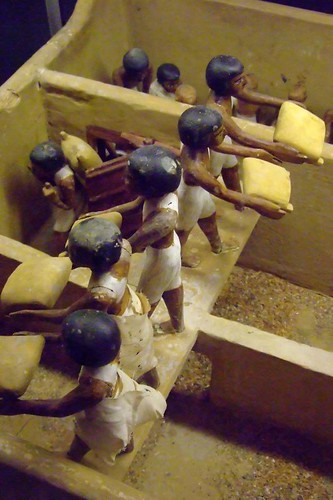"In 1569 in Holland, a Mennonite named Dirk Willems, under capital sentence as a heretic, was fleeing from arrest, pursued by a ‘thief-catcher.’ As they ran across a frozen body of water, the thief-catcher broke through the ice. Without help, he would have drowned.What's stunning about Holy Week isn't just that it happened, but that it happens again and again in this world. And the question is, just as it is for the pacifist witness of Dirk Willems, "does it work?"
What did Dirk Willems do then? Was the thief-catcher an enemy merely to be hated, or was he a neighbor to be loved as one loves oneself. Was he an enemy whom one must love in order to be a child of God? Was he ‘one of the least of these my brethren’? What Dirk Willems did was turn back, put out his hands to his pursuer and save his life. The thief-catcher, who then of course wanted to let his rescuer go, was forced to arrest him. Dirk Willems was brought to trial, sentenced, and burned to death by a ‘lingering fire.’
I, and I suppose you, would like to be a child of God even at the cost of so much pain. But would we, in similar circumstances, turn back to offer the charity of Christ to an enemy?"
From our perspective, Willem's charity didn't work out for him. But our definition of a life's working out well is probably closer to Spock's than Jesus's. "Live long and prosper" we get. "Love your enemies and pray for those who persecute you," ...not so much.
Like Wendell Berry, I can't say that I would respond like Dirk Willems. I can't even manage to forgive the enemy who simply slanders or mistreats my ego in the mildest of ways. And I can easily construct a situation in my mind in which the pacifist witness would look less noble, or at least more complicated. But the truth is that Jesus' silence this week before his accusers is not some literary flourish to this story.
Jesus refused to return evil for evil, violence for violence, even when it meant his crucifixion. He taught us to do the same. Yet radical peaceableness toward enemies was explained away so long ago by most Christians that we rarely let the notion cramp even our emotional state. The righteous hatred and embrace of retributive justice by Christians are taken as matters of fact, by the world and by us Christians ourselves.
All I ask is that we listen honestly to the story that will unfold this Triduum, these three sobering days. And ask the question, "This way of Jesus, this way of the cross, did it work? Does it work?"
The answer probably comes down to whether I will let Jesus' way go to work on me.






